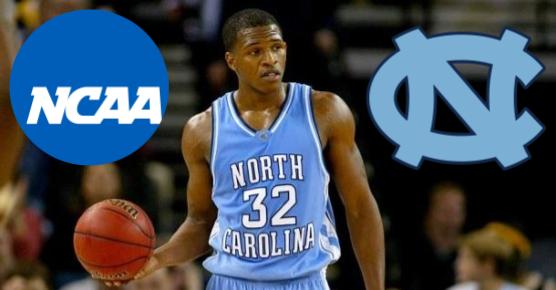Technicalities, in most cases, are very interesting. They expose weaknesses in whatever safeguards authorities think they have put in place, and allow rabble rousers to get off scot-free.
Depriving anyone of their education is a deeply troubling thing. Student-athletes already face more challenges than someone with the normal college experience: demanding practice, faraway travel or the threat of injury.
All these factors make the scandal at the University of North Carolina at Chapel Hill (UNC) so distressing; many basketball players were enrolled in fake classes. They lost an opportunity to learn as much as their peers, and the school that allowed it was let off, even though the National Collegiate Athletic Association (NCAA) had its chance to send a message.
Rashad McCants, who started on the 2005 championship-winning team, claimed that because of his athletic involvement, he received a substandard education. On June 6, 2014, he was interviewed on the ESPN program Outside the Lines and spoke about the treatment he received, like tutors doing his homework and taking classes with no teaching.
“When you get to college, you don’t go to class, you don’t do nothing, you just show up and play,” McCants said. “That’s exactly how it was, you know, and I think that was the tradition of college basketball, or college, period, any sport. You’re not there to get an education, though they tell you that.”
The NCAA could have used its power to punish UNC, yet it held back, releasing a general statement that it “could not conclude that the University of North Carolina violated NCAA academic rules,” because the faux courses were not only offered to athletes, but to the entire student body, denying certain classes to even more people.
These issues were not addressed in the NCAA’s decision.
While the NCAA has a limited scope, the fraudulent classes disproportionately affected student-athletes, and the organization would be within its right to exact justice per its mission statement: “the educational experience of the student-athlete is paramount.” The loophole that UNC got through is even worse than a technicality, because it reflects poorly upon both the university and the NCAA, even though on the surface level the outcome seems positive.
“Paper” classes hurt students and institutions alike. In the African and Afro-American Studies department, nearly 200 classes were held with no teaching over almost 20 years. Students who already miss classes because of away games are disadvantaged further when the few classes they get to have no teaching, and when the few assignments they turn in were completed by others or plagiarized.
Chapel Hill High School junior and UNC fan Caleb Jones sees it another way. “It doesn’t matter,” Jones said. “We won!” But the underlying problem is still there, because the lack of NCAA conviction allows more leeway for other schools.
Though the scandal has garnered national media attention, and received due criticism, the public university near Chapel Hill High School is still one of the best in the area. The blemish speaks volumes not only about UNC but of college athletics as a whole, sparking a debate over students’ unpaid role in the multi-billion-dollar industry.
I’m probably still going to apply to UNC next year (not as an athlete) and I’m optimistic that the coming years of students, many from Chapel Hill, will value more highly their education and not remain quietly in fake classes. But, of course, there is no way to enforce morality.
